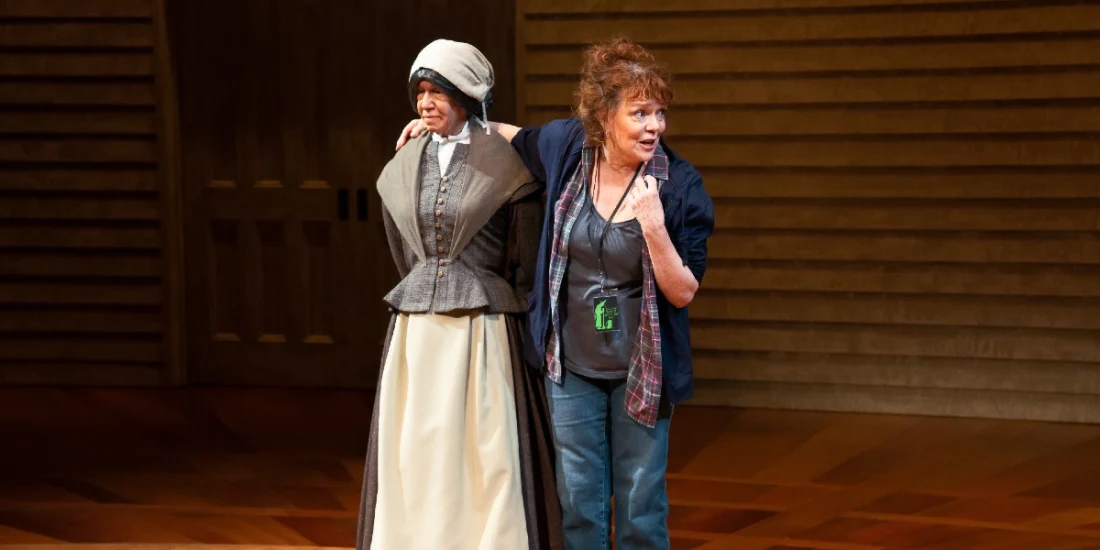'Becky Nurse of Salem' review — Deirdre O'Connell bewitches in Sarah Ruhl's new play
I, for one, would love all classic plays to be irreverently recapped by Deirdre O'Connell as Becky Nurse, the heroine of Sarah Ruhl's latest play at Lincoln Center Theater.
Becky, a guide at a Salem, Massachusetts witch museum, might not like that quite as much. After regaling a high school tour group (read: the audience) with her take on The Crucible in Becky Nurse of Salem's spellbinding opening scene, she's seen lamenting to the bartender Bob (Bernard White) that she hates her job. As luck would have it, she gets fired.
But Becky also has a depressed granddaughter to care for, an opioid addiction to feed, and a decades-old crush on the married Bob she can't shake. So what's a downtrodden woman in the land of the Salem Witch Trials to do? Seek out some magic, of course, with the help of a local witch (Candy Buckley).
Becky, for the record, doesn't even fully believe in witchcraft. But she is the distant descendant of Rebecca Nurse, one of the 19 people hanged during the Witch Trials. She takes that role very seriously at and beyond the museum, reminding any captive audience she can get that Rebecca was innocent, The Crucible incorrectly paints only its women as villains when John Proctor was just as flawed, and we're still telling the history of "witches" wrong.
Indeed, The Crucible, she also notes, is an allegory not only for the McCarthy era, but for Arthur Miller's lust for Marilyn Monroe and the guilt he felt for having it. (That's true, and it partly inspired Ruhl to write this play.) Casting her, the unknowing seductress, as the witchy antagonist Abigail and himself as the ultimately righteous John Proctor not only assuaged his guilt, but ended up shaping the way we understand the witch trials.
So Ruhl is essentially trying to reshape our understanding by way of Becky. She takes The Crucible to task alongside the way society, including other women, denounces those who dare to feel to the extreme and do something about it.
Though heavy-handedly delivered, her parallels between the Salem Witch Trials and contemporary sexism are astute. Rebecca was wrongly condemned for being a witch. Becky is fired, rejected, condescended to, and even jailed for being, one might say, a bitch — that is, an imperfect, loudmouthed, passionate, angry woman just trying to find a little hope.
And ironically Becky is on the chopping block for everything but witchcraft. This point serves as a reminder that neither historical nor current witch hunts were ever about the supernatural, but about the very natural experience of being a woman with power.
O'Connell, a veritable force of nature in every part she plays, is no different in this one. It's rare to see such complexity as Becky's in an older character, and O'Connell's total commitment to every facet of her volatile personality — at turns blustering, vulnerable, sardonic, and seductive — casts a spell that almost makes us forget the play's choppy pacing and underdeveloped addiction subplot.
O'Connell, a fine supporting cast, and some whimsical lighting by Barbara Samuels make the flawed Becky Nurse of Salem enchanting. One could call it an apt metaphor: that, like women like Becky, imperfect and rough-around-the-edges things are still worth attention. One could also call it magic.
Photo credit: Deirdre O'Connell in Becky Nurse of Salem. (Photo by Kyle Froman)
Originally published on
